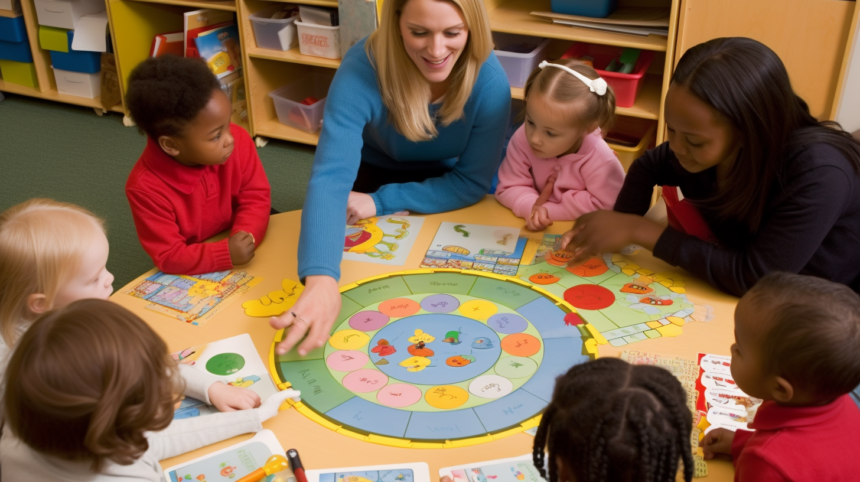Are you looking for fun and engaging ways to help your preschooler learn the alphabet? Look no further! We have compiled a list of the top 10 alphabet activities for preschoolers that will boost their learning skills and make learning fun. These activities are perfect for parents, caregivers, or educators who want to support children’s literacy development in a playful way.
1. Alphabet Games
Playing games is an excellent way to teach children the alphabet. There are many games available that can help children learn letters, sounds, and even spelling. For example, “Alphabet Bingo” is a popular game where players match letters on their cards with those called out by the teacher or parent.
Tip: Make sure the game is age-appropriate and challenging enough to keep your child engaged.
2. Alphabet Worksheets
Worksheets can be a great tool to reinforce letter recognition and writing skills. Printable worksheets are readily available online and can be customized to suit your child’s needs. For example, tracing worksheets can help children practice writing letters while also developing fine motor skills.
Tip: Use colorful markers or pencils to make the activity more engaging.
3. Alphabet Crafts
Crafts are a fun way to teach children the alphabet while also promoting creativity. Children can create letter collages using magazine cutouts or make their own alphabet book using construction paper and markers.
Tip: Encourage your child to use different materials such as glitter, stickers, or paint to make their craft unique.
4. Alphabet Songs
Songs are an effective way to teach children the alphabet as they help them remember letters and sounds more easily. Many popular songs like “The ABC Song” exist that can be used to teach the alphabet in a fun and engaging way.
Tip: Encourage your child to sing along and use hand gestures to make the song more interactive.
5. Tracing Letters
Tracing letters is an excellent way to help children learn letter formation and recognition. Children can trace letters using worksheets or even sandpaper letters, which provide a tactile experience.
Tip: Use different textures like cotton balls or sandpaper to make the activity more engaging.
6. Phonics Activities
Phonics activities are designed to help children learn letter sounds and how they relate to words. These activities can include word families, rhyming words, and phonemic awareness exercises.
Tip: Use objects around the house to create word families such as “cat,” “mat,” and “bat.”
7. Alphabet Puzzles
Puzzles are a fun way to teach children the alphabet while also developing problem-solving skills. There are many alphabet puzzles available that can be customized based on your child’s age and skill level.
Tip: Encourage your child to complete the puzzle on their own but offer support if needed.
8. Alphabet Flashcards
Flashcards are an effective tool for teaching children letter recognition, sounds, and even basic spelling. Children can use flashcards independently or with a parent or caregiver.
Tip: Use colorful images or illustrations on the flashcards to make them more engaging for young learners.
9. Matching Games
Matching games are a fun way to teach children letter recognition by matching uppercase letters with their lowercase counterparts. This activity can be done using cards or even magnetic letters on a board.
Tip: Make the activity more challenging by including letters that are not a direct match, such as “b” and “d.”
10. Alphabet Coloring Pages
Coloring pages are an excellent way to teach children the alphabet while also promoting creativity and fine motor skills. Children can color letters and even create their own alphabet book using coloring pages.
Tip: Use different colored pencils or markers to make the activity more engaging.
In conclusion, these 10 alphabet activities for preschoolers are perfect for parents, caregivers, or educators who want to support children’s literacy development in a fun and interactive way. By incorporating these activities into your child’s daily routine, you can help them build a strong foundation for reading and writing success.

